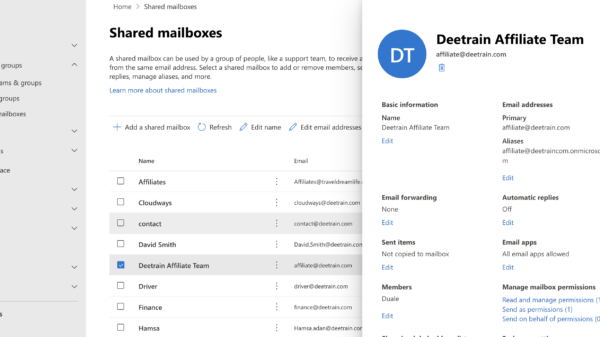Employees in technical Support are responsible for monitoring and managing an organization’s computer networks in their technical support job. If any difficulties or adjustments need to be made, such as lost passwords, malware, or communication issues, you will be the first person that workers contact.
This role requires CompTIA certification and computer and IT expertise. While some organizations need a bachelor’s degree in computer science or a similar subject, possessing CompTIA certification and basic computer knowledge will allow you to get a career in IT support.
In IT, Support, or helpdesk, degree holders, CompTIA Certifications holders, and high school graduates can pursue careers. A demonstrated interest in solving technological challenges, whether via past job experience or projects you have performed in your spare time, will be required for this position. This post will discuss the qualifications required for an IT support professional and the work description for this position.
To be an IT support person, what qualifications do I need?
While companies in the technical support industry are open to graduates from any subject, those with an IT-related qualification are preferred by most businesses.
It is frequently feasible to enter this field without having earned a bachelor’s degree. Apprenticeships in information technology support are available, with some positions needing simply GCSEs.
For additional information on the future of technical support, please see the following link: Is There a Future in Technical Support?
Many IT support Professionals develop their careers by extending their knowledge and abilities within a certain sector or area of specialization. Large corporations with substantial technical infrastructure can have various teams working with different parts of their operations.
It is feasible to go to a more specialized field working with more difficult technological situations as one gains more expertise. Another alternative is to take on the job of team or section leader, depending on your experience.
You should investigate each of these paths to become an IT support to see which is the most appropriate for you. Even though some of these alternatives have certain certification criteria, some companies are looking for eager people prepared to learn and take instruction.
University
An undergraduate degree in a related field, such as computer science or information technology, will be required by many companies before hiring an IT support analyst for their company.
For an undergraduate course, you’ll typically need the following:
English, mathematics, and science are among the subjects covered by 5 GCSEs at grades A* to C or equivalent, as are 2 to 3 A levels or equivalent in English, maths, and sciences.
College
You might enroll in a course at your local community college that would prepare you to work as a trainee IT support analyst for a firm. The following are examples of relevant courses:
Level 2 Certificate in Information and Communications Technology Systems Support Level 3 Diploma in Information and Communications Technology Professional Competence
You may require the following items:
Two or more GCSEs A* to D or an equivalent qualification (level 2 course)
4 or 5 GCSEs at grades A* to C, or an equivalent combination of subjects (level 3 course).
Apprenticeship
You might finish an advanced or higher education in IT support or an advanced apprenticeship in infrastructure technician to prepare for a career as an IT support.
You’ll need the following supplies:
The completion of certain GCSEs, typically English and mathematics, or an equivalent (intermediate apprenticeship) 5 GCSEs at grades A* to C, or the completion of an equivalent intermediate apprenticeship.
Apprenticeships are available to anybody who is over the age of sixteen. As an intern, you will be considered a full-time employee of your employer and need to put in a minimum of 30 hours each week. Your time will be divided between on-the-job training and attending classes at a college or training facility.
Work experience is required.
To obtain a job in the construction sector, you must have previous work experience. Work experience as an IT support can be gained at school or by volunteering on weekends and vacations for a firm or relative in the field. Prospective employers will always be happy to find that you have job experience included on your resume.
Employment
If you have basic IT abilities, you may begin working as a trainee IT support analyst and continue your education. At the same time, you are employed to advance to a more senior position later on.
Typically, analysts begin as junior programmers before moving to a developer or consulting position as their experience grows. Working with more sophisticated systems and IT challenges requires experience, which is especially important for professional advancement.
Training
Numerous companies in the information technology sector recognize the critical need for continuing training for technical roles, particularly given the rapid pace of technological advancements. As a result, many businesses may enroll you in a structured training program or send you to appropriate courses to keep you current.
There are a few specialty courses offered by the Helpdesk Institute that may be appropriate for this position. These include the Customer Support Specialist (CSS) certification for newcomers, the Help Desk Analyst (HDA) certification for experts with 1-2 years experience, and the Help Desk Manager certification for professionals with 3-6 + years of experience.
You can supplement your existing credentials by pursuing work-based qualifications such as the NVQ Practitioner Levels 1–4, the City & Guilds Higher Professional Diploma for IT Practitioners, or the OCR Higher Level Award for IT Professionals.
What knowledge, abilities, and certifications should an IT Support professional possess?
| Skills | Various Qualities | Degrees |
Accessing Each Customer IT Expertise | A capacity for prioritizatio and delegationention to Details | Computer Science |
| Dealing with Adversity | A process of Technical Logical Thinkings | Computing |
| Accurate Records Keeping | A capacity for adhering to stringent deadlines | Engineering |
| Dedication to Work | Dedication to Work | ComptiA A+ |
| Exelent Customer Service Skills | Exelent Customer Service | ComptiA Network+ |
| Comprehension of issues | Team Work | Internship Certificate in Copmuter Sceince |
Where Do IT Support Professionals Work?
IT professionals operate in a wide array of industries and settings. Computers and design, telecommunication, banking, and data processing and hosting are the sectors that hire the most IT specialists.
Additionally, you might get work with school systems and universities supervising their networks and internal technology requirements. In certain areas, particularly if you give remote desktop assistance, you can work from home.
While most IT technician positions are in-house at a business, third-party IT businesses are growing increasingly prevalent. You may be needed to travel often between the office and your clients in these roles.
Also, Learn the Difference Between Technical Support and Customer Support.
Responsibilities and obligations of an IT support
- Maintaining the system up-to-date is accomplished by operating system updates.
- Keep an eye on the network equipment and servers.
- Assist in the design, implementation, and continuing maintenance of new software and features. Work with a team of developers and designers.
- Monitor the website’s performance, the availability of the network, and the security of the system.
- Oversee the investigation and resolution of system errors.
- Provide helpdesk assistance for network-related issues.
- Provide technical help through phone, remote access, or on-site visits as needed, depending on the situation.
- Respond to information technology concerns such as hardware maintenance, software, networking, and so on.
- Examine any connectivity difficulties, as well as the equipment and software in use.
- Configurations, utilities, software, and other items can be changed.
- Set up equipment for new users to begin using it.
- Servers, firewalls, and new software are all installed, tested, and monitored.
- Make regular backups of your data.
- Network system enhancements should be installed and updated as needed.
- Assist with server administration, LAN/WAN technology, computer repair/troubleshooting, and other related tasks.
- Software, networks, virus prevention, Wi-Fi technologies, and other related topics are covered.
What exactly do information technology support Specialists perform?
Even while many information technology support technicians work as resident workers in businesses that rely on computer systems, others work for computer makers and suppliers, providing Internet-based technical support services. Technicians are responsible for a variety of duties, which vary depending on their work environment. Some of these tasks are as follows:
- Getting in touch with clients to acquire additional information about computer problems.
- Making a diagnosis of the problems and developing solutions
- Clients are being educated on solutions.
- Scanners and printers are examples of peripheral equipment that must be installed.
- Keeping track of computer malfunctions, including their causes and solutions.
- Providing new technicians with instruction.
What is the employment outlook for information technology technicians?
According to the Bureau of Labor Statistics, computer support occupations are expected to expand higher than the national average during the next several years.
According to the Bureau of Labor Statistics, employment for computer user specialists is expected to rise by 11 percent, while opportunities for network support technicians are expected to grow by 8 percent.
Several industries, such as healthcare, benefit from the transition from mostly paper-based systems to digital systems, requiring additional assistance and troubleshooting.
Smaller businesses that rely on IT consultants rather than in-house IT professionals also contribute to its growth.
Opportunities for IT Support
In many firms, you will discover a logical transition from one position to another in technical assistance. For example, you may find yourself promoted to a more advanced technical support position and then to a team, section, or department head position after that.
Alternatively, a position in technical assistance may serve as an excellent stepping stone into various other information technology fields, such as coding, IT training, technical sales, or systems administration.
IT Support’s working hours
Because of the nature of the work, you may be required to work shifts or be on call, and it may be essential to work overtime to complete a project on schedule.
Many major corporations do not offer opportunities for part-time work because of the long hours they require their employees to work. Still, it may be available in certain smaller organizations. Although the market for house repairs and improvements for individuals and small companies is declining, there are chances for self-employment in this field.
A career hiatus is uncommon because of the necessity to stay up with constantly changing software and operating system platforms.
What to expect
Working as rapidly as feasible to solve problems and accomplish immediate results in all circumstances is frequently required.
In most cases, extensive customer interaction is necessary.
If you are in charge of hardware or networks, you may have to handle and carry heavy equipment and extend to reach objects in odd positions on the network. Because of the physically demanding nature of the job, the dress code is often informal; nonetheless, you are required to maintain an acceptable level of smartness.
Travel within a working day is occasionally necessary, and it may be necessary at short notice.
It may be essential to spend the night away from home, and international travel is only required on rare occasions.
What’s the Salary of IT Support?
Information Technology Support earns an average income of $48,754 per year, or $23 per hour, in the United States of America. The top ten percent of earners earn more than $71,000 per year, while the poorest ten percent earn less than $33,000 per year on average.









